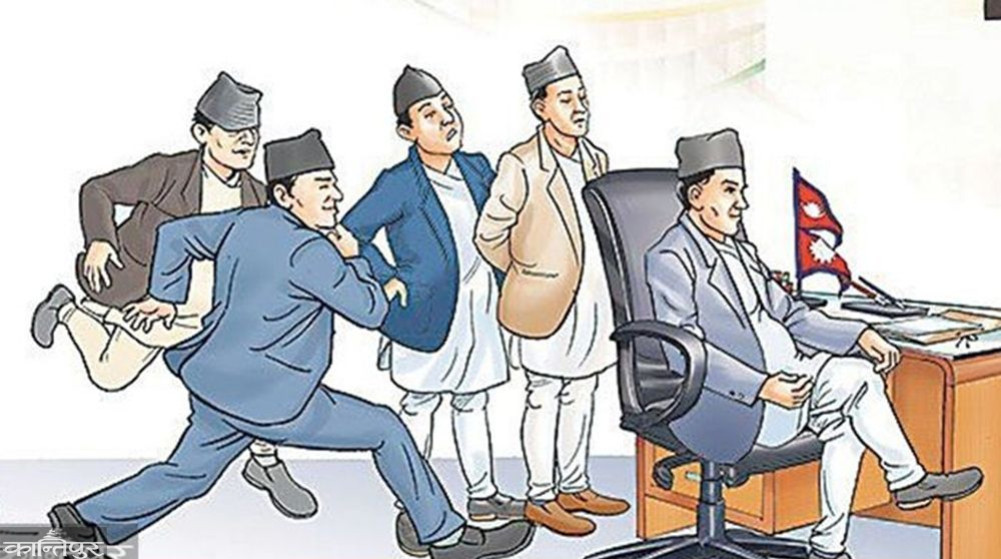Women's ownership of property
We use Google Cloud Translation Services. Google requires we provide the following disclaimer relating to use of this service:
This service may contain translations powered by Google. Google disclaims all warranties related to the translations, expressed or implied, including any warranties of accuracy, reliability, and any implied warranties of merchantability, fitness for a particular purpose, and noninfringement.


When the monarchy was overthrown and the multi-party system was introduced, slogans were chanted in most of the meetings, conferences, processions and rallies, 'Whose house is plowed, whose field is plowed?' This slogan was used to bring the land owned by the moneylenders and zamindars to the ruling class.



Accordingly, Kamaiya, Halia, Hruwacharua, Jotaha farmers were freed. They got a small amount of land from the government. Categorically this is a big change. However, sexually, even now, it has not been possible to be the one who carries the house and plows the land or takes care of it. After 35 years, most of the women who take care of the house do not own the house.
Most of the women tending the fields do not have rights to the land. Women owning property means being financially empowered. Only the person who owns the property has the right to enjoy his property, sell it, mortgage it, let others use it or use it in any other way. Due to lack of property ownership, women have not become economically strong as expected.
According to the 2078 census, the population of women is 657 thousand 476 more than men. That is, 51.04 percent of the total population are women. However, women's ownership of property is pitiful. Only 2.3 percent of women own a home. Out of 66 lakh 60 thousand 841 families, only 1 lakh 55 thousand 376 households have houses in the name of women.
Women are 9.7 percent of households that own property. The number of families in which both the house and the land are in the name of women is 11.8 percent. 74.6 percent of women in the family do not own any real estate. Provincially, the situation in Far West and Karnali is even worse. Only 0.7 percent of households in Far West and 0.9 percent in Karnali are owned by women. In Gandaki, the highest number of 3.4 percent families own houses in the name of women.
In the previous census in 2068, the percentage of total households owned by women in both house and land across the country was 10.7 percent. Women's land-only households accounted for 9.0 percent. With the goal of having property in the name of women, the government has provided a 25 percent registration discount for the transfer of land in the name of women. An additional 25 percent registration discount is available for passing in the name of a single woman. It is a pity that women cannot own real estate in the name of women even with such a large facility of tax exemption. It is an example of their own family members not trusting women and Nepali society not being generous towards women.
The constitution has provided children with the right to equality in the same lineage and ancestral property. There is also a precedent of the Supreme Court that a married daughter will inherit the property. On November 9, 2078, the Ministry of Land Management and Cooperatives has issued a circular for the effective implementation of the system for all sharers to receive a share in ancestral property without gender discrimination in the land offices across the country. Despite having so many constitutional rights and legal basis, the fact that the ownership of women's property has not increased in a promising manner has proved that women are not strong in the household. Women's right to inheritance is one of the ways to eliminate inequality between children. It is a way to end the terrible situation of dowry system. However, there is no debate about this.
Women's right to use their own resources and property is women's right to property. Women's access to and control over property. Increasing women's mobility in education, employment and economic activities. However, due to women's lack of rights over property, they have not been able to enjoy the property that they have suffered for their entire lives. Establishing gender equality and social justice is the essence of the constitution.
Unless women own property, women cannot become economically empowered. Making women the owners of property is not only a women's issue but also the basis of family, society and nation development. Therefore, to change the economic status of women, property ownership should be increased.
Women should have access to and control over both the couple's assets, whether ancestral or family matters. Increasing women's ownership of property is not an easy way to change the economic balance of gender equality in our patriarchal society. Community awareness and awareness are also necessary in this way, which cannot be changed only by legal measures.
 प्रकाशित : जेष्ठ ३, २०८१ ०८:०६
प्रकाशित : जेष्ठ ३, २०८१ ०८:०६

 २१.१२°C काठमाडौं
२१.१२°C काठमाडौं
















